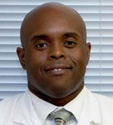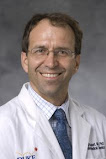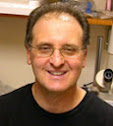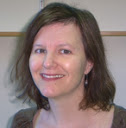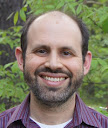
Our research focuses on the development and application of new statistical methods for the discovery and interpretation of genetic variation responsible for complex human disease. It involves a mix of genetics, statistics, and computer science and is motivated by inferential problems encountered in collaborative disease-gene mapping projects.
We are interested in how aberrations in iron homeostasis cause or exacerbate human diseases, including iron deficiency anemia, genetic hemochromatosis (iron overload) and neurodegenerative disorders. Although we have studied human patients in the past, we primarily use mice as our genetic model, taking advantage of strong similarities in iron homeostasis among mammals.

Ornit Chiba-Falek, PhD
My lab studies the genetic factors and molecular mechanisms underlying age-related neurodegenarative diseases, with a focus on Alzheimer’s and Parkinson’s diseases and other conditions in this spectrum. GWAS discovered genomic regions associated with neurodegenerative disease risk. Our research goal is to identify the precise causal and functional genetic variants underlying the reported associations, and understand their molecular mechanisms of action and the biological pathways through which they exert their pathogenic effects. We are particularly interested in noncoding structural variants and their impact on mRNA expression and splicing, and neurodegenerative-related phenotypes.
Our research goal is to understand innate immune responses directed against intracellular bacterial pathogens. In order to achieve our goal, we apply functional genomics approaches in cell-based assays to identify host genes that provide resistance to bacterial infections in mammalian cells. To study the function of these newly identified resistance genes in shaping the outcome of an immune response, we model human infections in genetically engineered mice.
Our research applies the experience learnt while mapping of the mouse genome and sequencing human chromosome 1 for the Human Genome Project to elucidating the molecular mechanisms underlying multi-factorial diseases. My group’s research involves the identification of the genetic, genomic and epigenetic factors that give rise to the development of chronic complex diseases, including multiple sclerosis, cardiovascular disease, developmental disorders, osteoarthritis and cancer.
My research interest is in hereditary causes of nephrotic syndrome. I am also particularly interested in health disparities in nephrotic syndrome.
My laboratory studies a variety of Mendelian and complex diseases using genome-wide association studies, exome sequencing, and functional molecular genetics assays. We are using zebrafish to evaluate the functional consequences of genetic variants identified in a large GWAS of adult onset glaucoma. Through exome sequencing of families, we are identifying novel mutations leading to congenital glaucoma and muscular dystrophy.
Humans display an incredible diversity in disease susceptibility. Deciphering the genetic contributors to this diversity helps us understand what genes and pathways are involved in the pathophysiology of disease and identifies new targets for therapeutic intervention. My lab studies the mechanistic connections between genetic variation and disease by combining the disciplines of cellular microbiology and quantitative human genetics.
As a physician-scientist practicing clinical and biochemical genetics, I am highly motivated to seek improved therapy for my patients with disorders of metabolism. The focus of my research has been the development of new therapy for glycogen storage diseases (GSD). GSD results from the deficiency of specific enzymes involved in the storage and retrieval of glucose in the body: glucose-6-phosphatase.
My laboratory studies the genetics of cardiovascular disease using both the human and the mouse as a model system. We are particularly interested in harnessing the power of mouse genetics to map novel genes that affect the severity and progression of disease in mouse models of disease. We have a number of projects using a surgically induced or transgenic model of disease related to models of heart disease, peripheral arterial occlusion, and cerebral ischemia (stroke).
Human physiology is directed by complex interactions between factors encoded in our genome and those encountered in our environment. Environmental factors such as intestinal microbiota and diet regulate immune and metabolic homeostasis and also contribute to a spectrum of human diseases. Our research interests are focused on understanding how intestinal microbiota and diet interact with host genome-encoded processes to influence host physiology and pathophysiology.
Human physiology is directed by complex interactions between factors encoded in our My lab studies stem cells of the developing brain. Defective division of these stem cells is thought to underlie broad neurodevelopmental disorders, affecting brain size and structure. We use the mouse as a model organism to uncover new genes important for normal stem cell function but also for the pathology of these disorders. To do so we employ multidisciplinary approaches including imaging of live brain slices, genetics and functional genomics.
Chromosome inheritance ensures faithful transmission of genetic material every cell division. Mistakes in chromosome segregation are associated with aging, abnormal reproduction, congenital birth defects, and diseases such as cancer. My lab studies formation and behavior of genome rearrangements by experimentally re-creating common human chromosome abnormalities in cultured cells. Our research is also focused on understanding the organization and function of the centromere, a locus essential for chromosome inheritance.
The bacterial pathogen Mycobacterium tuberculosis causes 1.5 million deaths annually. We are interested in how human genetic variation affects susceptibility to tuberculosis and disease progression. Using a zebrafish model, we have identified host genes that are important in host defense against pathogenic mycobacteria. We then assess these findings in human tuberculosis cohorts, collaborating with groups in Vietnam and Guatemala.



